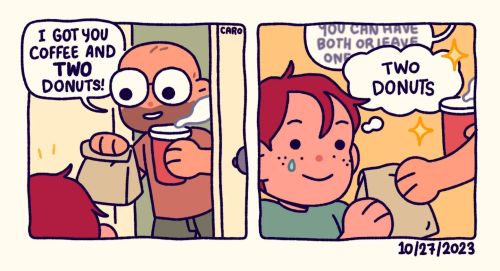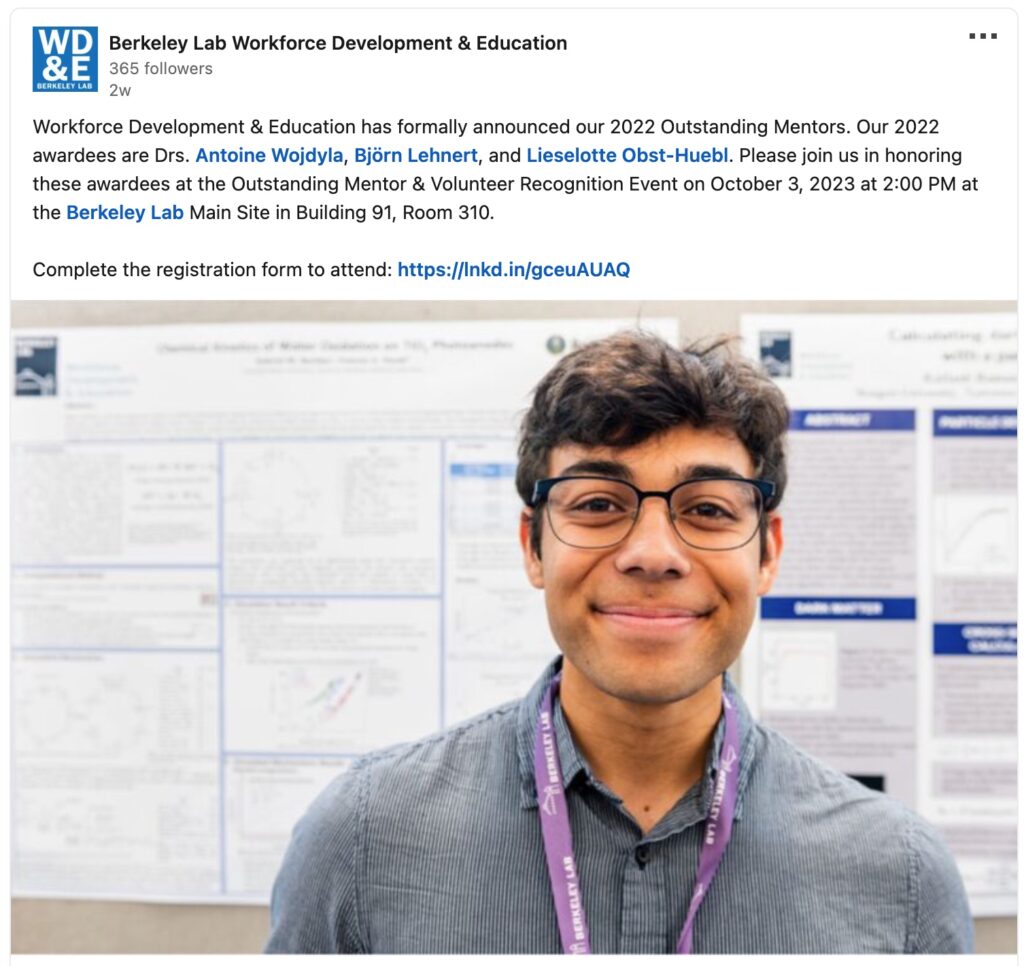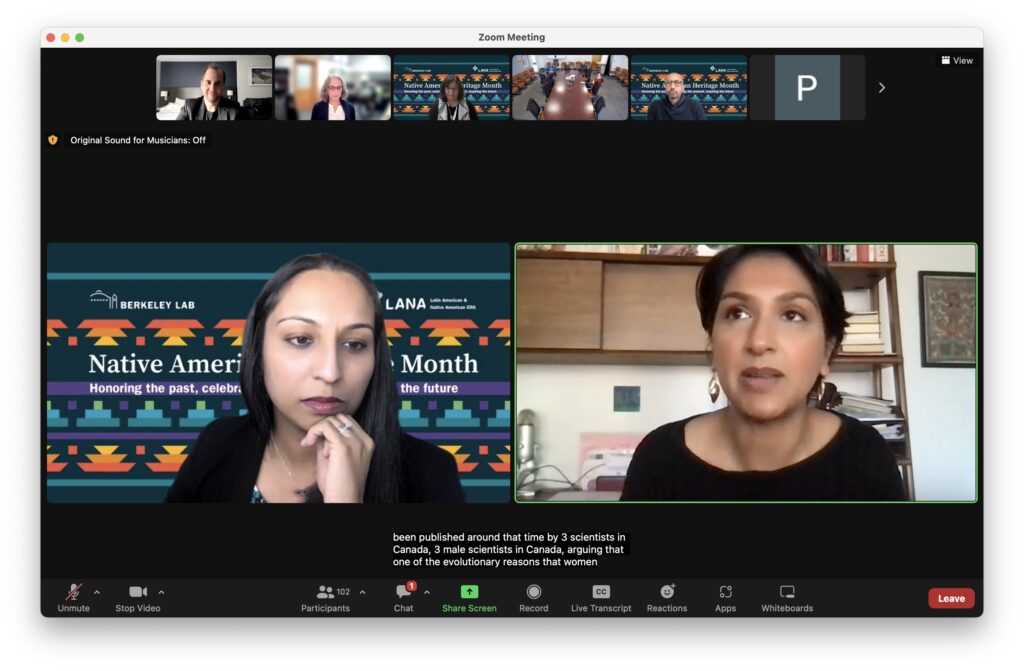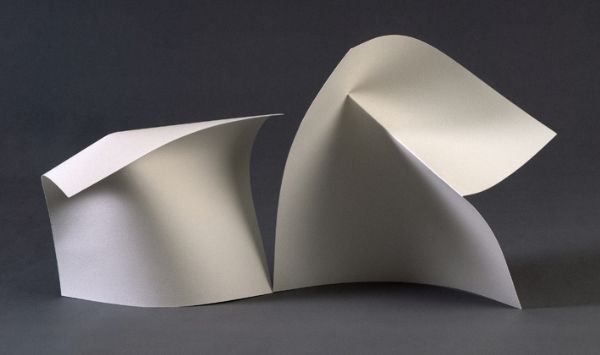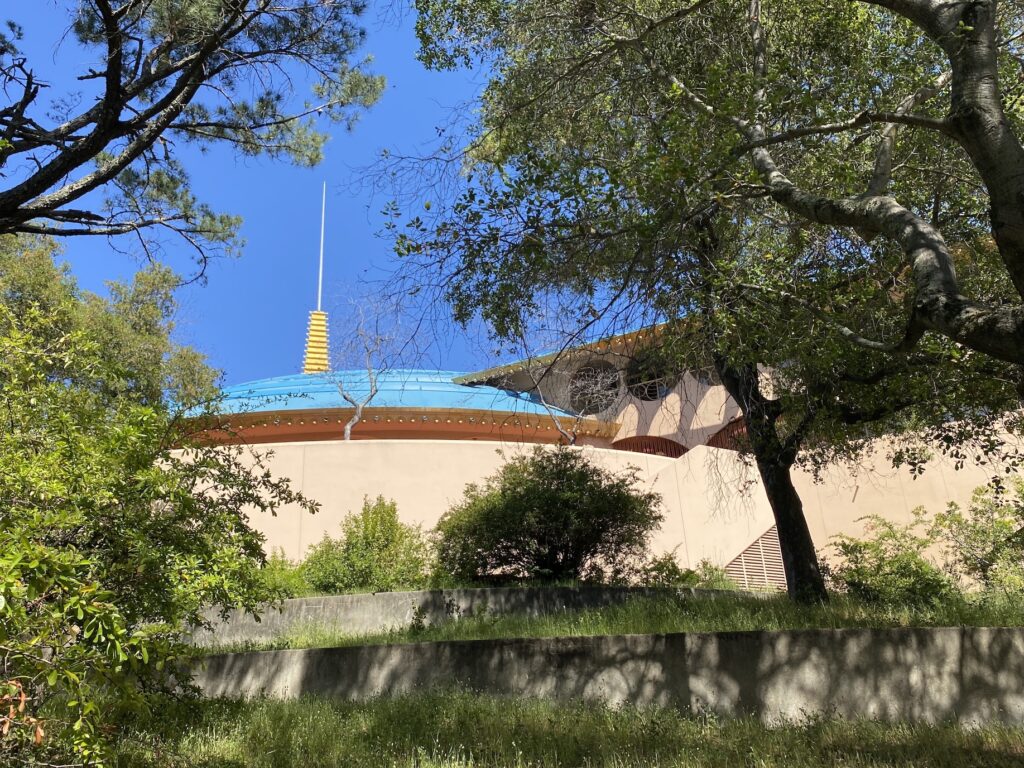In times of pandemic, there were no coffee room to distract yourself, exchange ideas with other colleagues or just chat about the state of the world. In a certain sense, Twitter has been the equivalent of a coffee room, and I’ve probably spent more time than I should have on there, but I’ve also learned quite a lot about science – not the natural world in itself, but how it works as an enterprise, some of its limitations (e.g. publishing), some of its problem (e.g., mental health issue, impostor syndrome; systemic discrimination) and also participate to the conversation on how to improve things.
The way you use Twitter is personal; some spend a lot of time but stay in the shadow, some like to share everything they see as they would do on Instagram. For me, I use it as a bookmark for tiny ideas (I often use the
Twitter advanced search to find a resource I know I shared at some point), and I try to post something every once in a while, to tell the others I’m here. And more and more I use it to boost some messages (propping up students and announcements), which I can do now that I do have some followers with large reach (@Cal, @UCBerkeley, @BerkeleyLab or @SPIEtweets or influential people.)
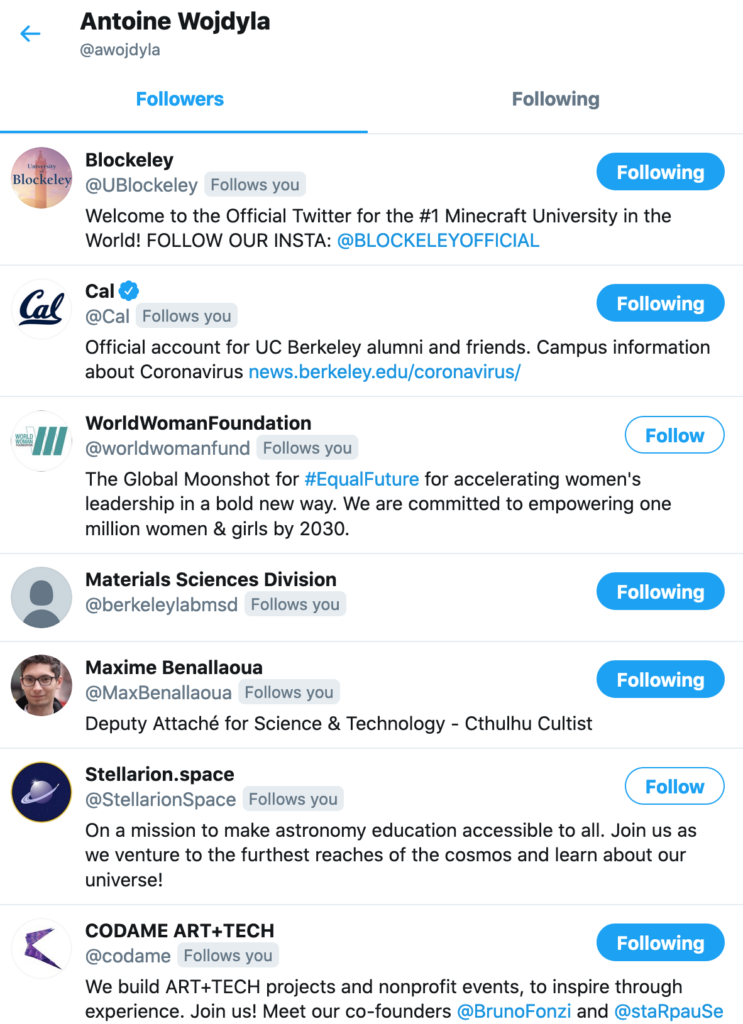
Lots of various interests converge in my following
Sometimes I post a tweet that blows up, and I wander in the Twitter Analytics to look at the aftermath. There, you realize that even with a tiny following, you can reach a lot of people (At the present moment I have 450 followers, and 120,000 impressions.)

This was a month with a particularly high number of tweet impressions
The good thing about Twitter is that there’s no filter: anyone can say anything they want, and sometimes you happen to produce something interesting, something that others needed without knowing it was there (that’s the essence of virality.)
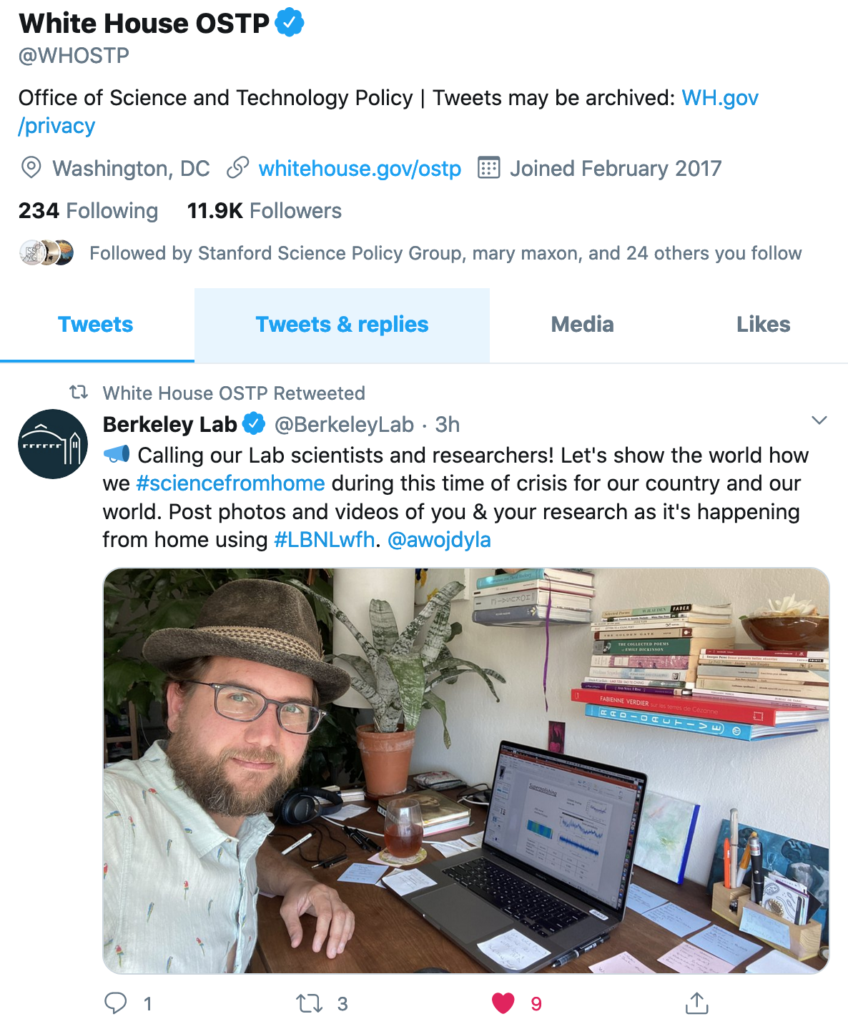
This one I showed to my mon
The flip side of course is that you have to be mindful of what you say – what people call cancel culture is often the absence of an editor, or simply time to fine tune their message, to tell them they’re going too far. In the extreme, you get incendiary content that get amplified in weird ways by algorithms that are extremely good at hacking your dopamine pathways (here’s an excellent thread on that topic)
On Twitter, you also get to meet people you wouldn’t otherwise – people that are not in your existing network, but are expert and willing to help (you also realize that a lot of people you admire are on Twitter – or is it just the opposite?)

Something I didn’t expect is that I would meet in real life people I got to know from Twitter, and some who are now lifelong friends. People with who you share affinity with and a common sense of purpose.I do like Twitter, and even though it has some similarities with drugs (I used to smoke cigarettes, and the urge to check Twitter whenever you’re idle is strangely similar), it is much better than most other social media. Somehow, they managed not to grow it too big, and it is still a very civil space from where I learn a lot.
